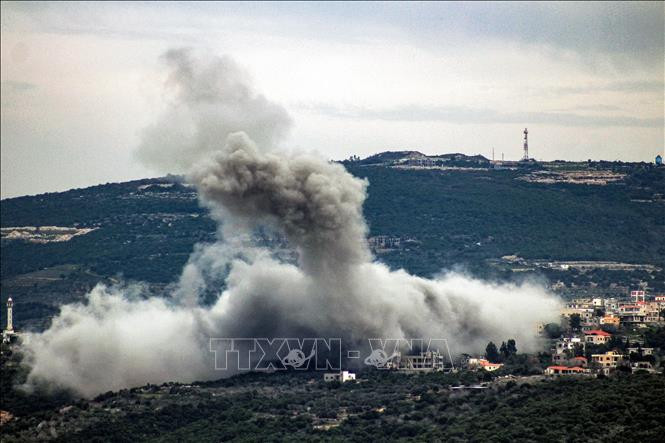The only way to prevent a potential war with Lebanon is for Hezbollah to withdraw its troops.

Twelve young men and children were killed on July 27 in the Golan Heights by shelling from Lebanon, according to the Israeli military. Israel said it had identified about 30 rockets fired from Lebanon into Israeli territory and blamed the Hezbollah movement for the attack.
However, Hezbollah has denied involvement in the attack.
“The only way the world can prevent a full-scale war that could devastate Lebanon is to force Hezbollah to implement UN Security Council Resolution 1701. Now is the last minute to do so diplomatically,” an Israeli Foreign Ministry spokesman said on social media X.
The attack on the Golan Heights was a major escalation in months of unrest along the Israel-Lebanon border. Israel and Hezbollah have been exchanging increasingly fierce fire along the border for nearly 10 months, and even before the July 27 attack, regional leaders warned that the conflict was reaching a boiling point.
The exchanges of fire have become more frequent in recent weeks, with both Hezbollah and Israel targeting locations deeper and deeper into Lebanese and Israeli territory.
Tensions rose when Israel killed two senior Hezbollah commanders, Sami Taleb Abdullah in May and Muhammed Neamah Naser in June. Israel accused the two of directing terrorist attacks before and after the October 7, 2023 incident. Hezbollah retaliated by firing hundreds of rockets into Israel. However, tensions have not escalated into a full-blown conflict.
Before 1967, the Golan Heights were part of Syria's Quneitra province, inhabited mainly by the Druze Arab community. However, two-thirds of the strategic plateau was captured by Israel during the 1967 Six-Day War and the Fourth Arab-Israeli War in 1973. Tel Aviv unilaterally claimed sovereignty over the area in 1981, but the United Nations Security Council rejected the claim, considering the Golan Heights to be occupied Syrian territory.